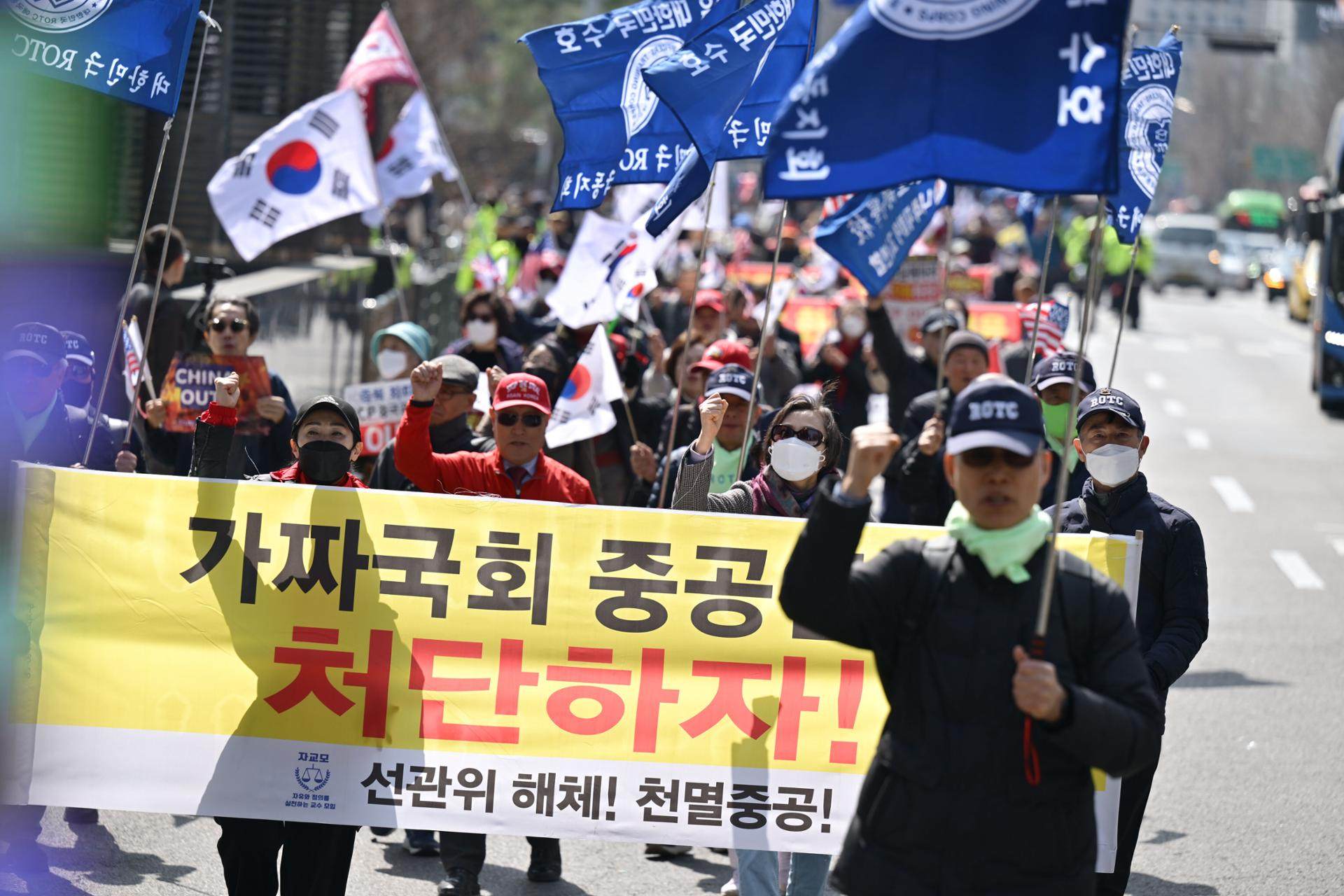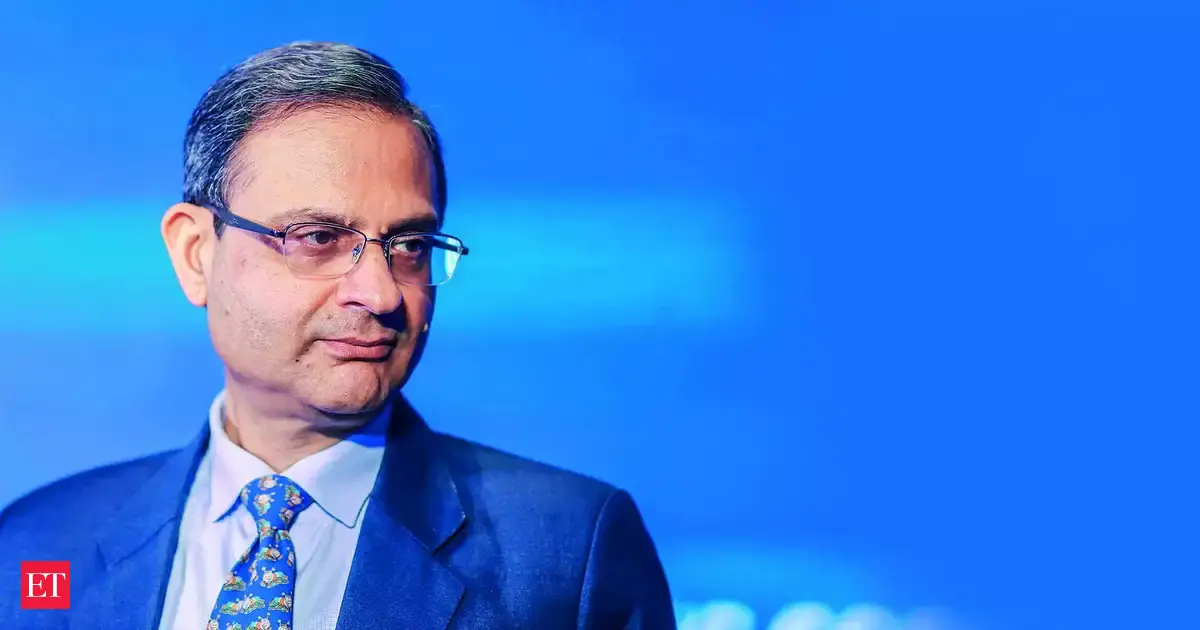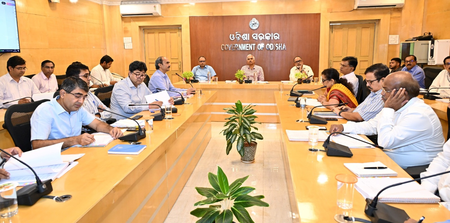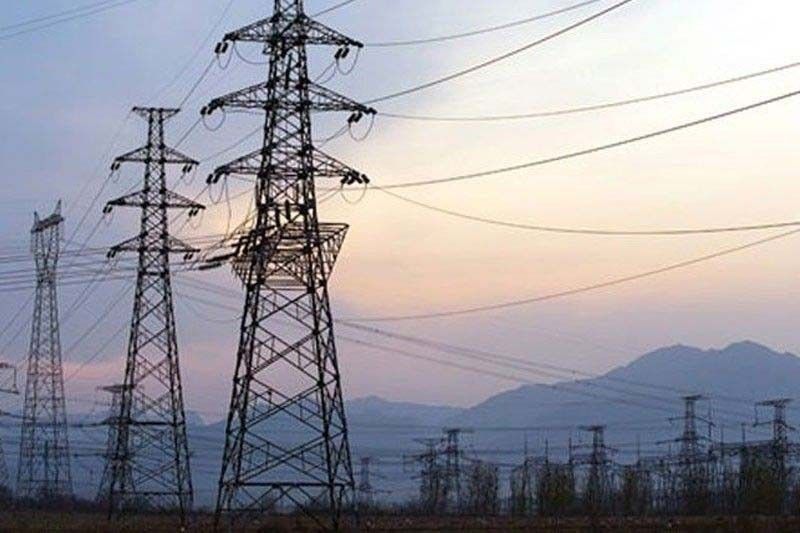By Park Chan-kyong
Copyright scmp

South Korea’s prime minister has ordered a clampdown on anti-China demonstrations outside the Chinese embassy, amid warnings that such protests could derail Seoul’s efforts to reset ties with Beijing.
Prime Minister Kim Min-seok on Friday directed law enforcement to “take strong action” against the increasingly disruptive rallies, which had led to merchants and residents complaining of noise, abuse and declining tourist traffic.
Kim told police to “closely monitor the protests, and do everything possible to maintain public safety and order so that merchants, residents, and Chinese nationals in the affected areas do not experience growing inconvenience or anxiety in their daily lives”.
The rallies in Myeongdong, a major shopping district in central Seoul that hosts the Chinese embassy, have often been noisy and sometimes become violent.
For more than three months, hundreds of “hate China” demonstrators have been rallying and marching through Myeongdong, an area popular among tourists, including those from China.
Waving banners, the protesters frequently chanted slogans such as “China out” and hurled abuses, prompting scared Chinese tourists to flee from the site.
Police questioned some participants after tearing down banners bearing images of Chinese President Xi Jinping and Dai Bing, the Chinese ambassador to South Korea.
The crackdown order comes after President Lee Jae-myung said South Korea needed to manage its ties with China based on its strong alliance with the United States.
“The government cannot sit idle because such protests are feared to damage its efforts to improve ties with Beijing,” Yang Moo-jin, head of the University of North Korean Studies, told This Week in Asia.
“This move is related to Seoul’s efforts to bolster ties with Beijing based on its strong alliance with the United States,” he added.
Yoon Sung-suk, a political-science professor at Chonnam National University, said anti-China protests would not help national interests, as Seoul was seeking to improve ties with Beijing.
Bilateral relations hit a low during the administration of former conservative president Yoon Suk-yeol, who was later impeached and jailed over his failed martial law decree.
“Such protests by extremists are feared to hamper Seoul’s efforts to mend fences with Beijing amid tough trade negotiations with Washington,” Yoon the professor told This Week in Asia.
In an interview with Time magazine published on Thursday, Lee said South Korea remained well placed to act as a “bridge of exchanges and cooperation” in the region by cementing ties with the White House.
“We will stand together with the US in the new global order, as well as supply chains centred on the US, but there is a need for us to manage our relationship with China so as not to antagonise them,” the South Korean president said.
Otherwise, Lee conceded, there was “a risk that South Korea could become the front line of a battle between two different blocs”.
Foreign Minister Cho Hyun has said signatories including South Korea to the 1961 Vienna Convention on Diplomatic Relations are obliged to stop such protests.
“Protests by extremists are taking place in all the countries in the world, but should they go too far, we are obliged to stop them in accordance with not only domestic laws but the Vienna Convention as well,” he told journalists on Friday.
Under the convention, the receiving state has a special duty to prevent any disturbance of the peace of the missions or impairment of their dignity.
Lee has condemned the anti-China protests as “nothing but ruckuses”, calling for countermeasures.
“At a time when we are striving to increase tourist numbers, they are holding rallies that insult tourists from a particular country,” Lee said during a government cabinet meeting last week.
“Merchants are trying to make a living by selling goods to tourists, but these protesters are insulting them and driving [customers and tourists] away.”
He accused the protesters of obstructing business and worsening relations with China.
“How can these protests be called freedom of expression? It’s nothing but ruckuses. We need to think seriously about it.”
TV footage showed hundreds of protesters marching around Myeongdong last week, shouting “China out! China out!” as they sang openly xenophobic songs in unison.
At times, demonstrators had even threatened local merchants who asked them to refrain from using hate speech as their acts scared away tourists and other customers.
Park Jeong-su, a Myeongdong shop owner, said on MBC TV: “They’ve shoved placards targeting Chinese people right up to their faces, and it’s been a huge disturbance for us. On days when the protesters show up, I can barely do any business at all.”
Police last week blocked the protesters from entering the busy commercial district. Undeterred, the activists moved their rallies to Daelim district in the southern part of Seoul, a Chinatown densely populated by Chinese nationals of Korean ancestry.
“This country is now being messed up because of the inflows of Chinese illegal immigrants”, one protester told MBC TV.
Chinese residents in Daelim have expressed dismay at the xenophobic rhetoric.
“I’ve lived in Korea long enough to feel half Korean,” a Chinese resident said on MBC TV. “I don’t want to see these protests. Hearing such words makes me very sad.”
Educators in Daelim district, where more than 60 per cent of students come from multicultural backgrounds, have warned that hate speech hurts their students, calling for protective measures.
Police have vowed to sternly punish those who are caught hurling abuses at foreigners and threatening them, and limit locations for such protests.
The protests come ahead of next month’s Asia-Pacific Economic Cooperation leaders’ summit, which Xi is expected to attend, to be held in the southern city of Gyeongju.
Cho has said Lee is likely to hold talks with Xi during the multilateral summit of major economies set for October 31 to November 1.



